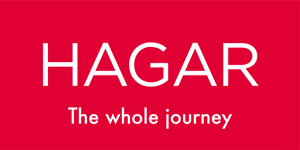
The Singapore Government introduced a series of changes to the Women’s Charter on October 7, 2019. The changes revolved around sex work in the country and were aimed at improving the safety of women and children. The Ministry of Home Affairs (MHA) said the new extra-territorial powers will help authorities deal with people who run overseas businesses offering sexual services in Singapore.
Prosecution against people who exploit women and girls for sex work remains tough, lawyers explained, because those in the sex trade are “trapped” and may struggle to report crimes against them to relevant authorities, lawyers said.
More understanding of sex work in Singapore is needed to ensure women and girls are not exploited, NGOs and academics added.
Among the amendments, harsher penalties for crimes like trafficking and exploiting children for sex were proposed. For trafficking women and girls, a first time offender could face a jail term of up to seven years and a maximum fine S$100,000 – a 10-fold increase from the current maximum fine.
The amendments are to be welcomed but there is scope for more to be done, said Mr Michael Chiam, executive director at Hagar, an organisation which helps women and children who have endured trauma, including slavery, human rights abuse and human trafficking.
Tougher sentences are not the only way forward, Hagar’s Mr Chiam explained.
He said: “While the harsher penalties may improve deterrence, this alone will not help eradicate the presence of vice activities if the demand for commercial sex continues. More needs to be done in the areas of education and awareness raising of such issues in Singapore.”
While the amendments are a good step in protecting women and girls from being exploited for sex work, they might not be enough.
It is “always difficult” to track down the masterminds behind the exploitation of women and girls for sex work and hold them legally liable, said Ms Gloria James-Civetta, head lawyer at Gloria James-Civetta & Co.
These women and girls are often tricked into coming to Singapore with promises of a better life after paying hefty amounts of money to middlemen back home.
They are then forced into sex work after reaching Singapore and not given the necessary work passes to stay in Singapore legally.
“These women and the girls are trapped and they would not report it to the relevant authorities since it is an offence to stay in Singapore without a valid work pass and they would risk being repatriated back to their home countries,” she said.
“They also risk their families back home being put in danger by the middlemen in the event the women or girls decide to report to the relevant Singapore authorities.”
The amendments are “useful” as they will form a deterrent function, the lawyer explained.
“Beyond amending the Women’s Charter, Singapore generally needs to take further steps in protecting women who voluntarily engage in sex work,” said Dr Kevin McGahan, a political science lecturer at the National University of Singapore (NUS) who specialises in the topics of human rights and trafficking.
“Both government agencies and civil society organisations in Singapore should work together to help empower sex workers and raise awareness about the many issues they confront – ranging from verbal abuse to discrimination to physical violence.”
Click here for the full article from Channel News Asia.
Help us transform lives
Join HAGAR to empower survivors of trafficking and abuse to start a new life.
Help us transform lives
Join HAGAR to empower survivors of trafficking and abuse to start a new life.
Help us transform lives
Join HAGAR to empower survivors of trafficking and abuse to start a new life.

 original article
original article